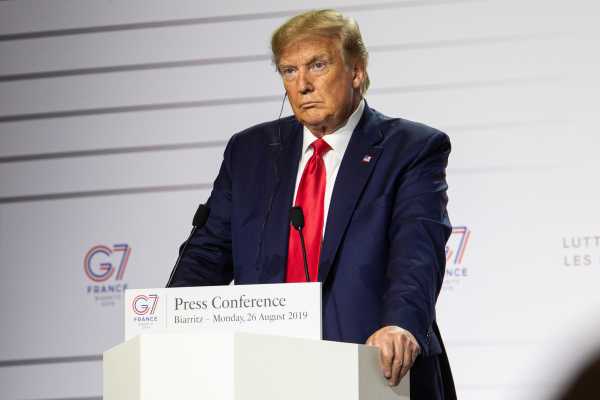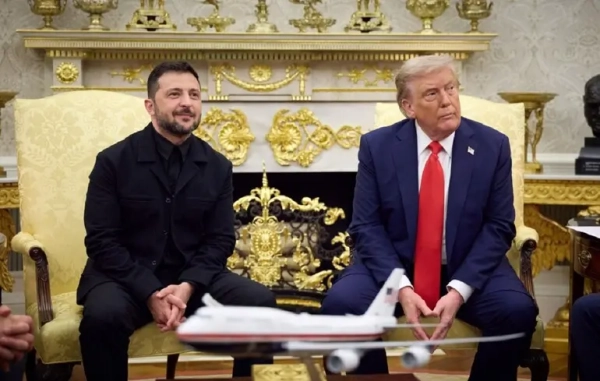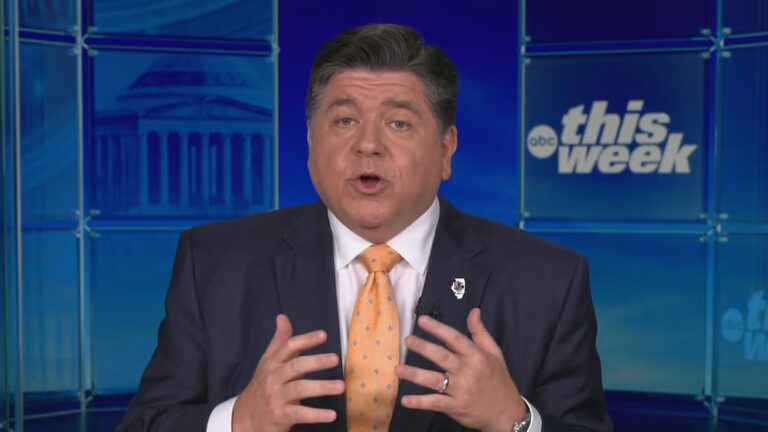
Wall Street is at a point where it can’t — or won’t — ignore President Donald Trump’s trade antics and Twitter tirades like it used to.
The latest big data points are Trump’s whiplash on the trade war with China and concerns about a potential recession, some of which is fueled by what’s coming out of the White House, has had investors on edge in recent weeks.
The Dow Jones Industrial Average fell by 600 points last Friday after Trump tweeted he was ordering American companies to start looking for alternatives to business in China. (It’s not clear whether such an order carries much weight). On Monday, the Dow recovered by almost 300 points, thanks in part to Trump’s comments that China had called and asked to “get back to the table” on negotiations. But if you lost money on Friday, you didn’t make it all back on Monday.
In the early days of the Trump presidency, Wall Street mostly stubbornly ignored some of the president’s over-the-top antics. Were the tweets a little weird sometimes? Sure. But between tax cuts and deregulation, they were also pretty easy to ignore.
But that’s starting to change.
The global implications of the escalating trade tensions between the United States and China are weighing on investors. The longer this goes on, with no firm deal in sight, the likelier it becomes to affect business investments and corporate decision-making, or even to tip the US into a recession. There’s also not a lot going on elsewhere for traders to focus on, making market movements more prone to follow day-to-day headlines and therefore more volatile, especially in an environment of tariff-by-tweet. And it’s not just China — Trump’s NAFTA replacement, the United States-Mexico-Canada Agreement (USMCA), isn’t flying through Congress, either.
“The overwhelming consensus among trade experts is that tariffs are going in place and are going to stay in place, probably, through 2020,” said James Lucier, managing director at policy research group Capital Alpha. “Somehow, I think many in the financial markets have had a willful suspension of disbelief.”
Trump’s tweets are getting a little more real
During the early days of Trump’s presidency, markets by and large managed to ignore some of the drastic activity coming out of the White House. Investors embraced the upside of Trump’s presidency — a big corporate tax cut and a generally more corporate-friendly attitude — and overlooked a lot of the downsides and risks.
But as time has gone on and Trump’s trade tactics, specifically, have started to sink in, some of that optimism has started to dissipate. It’s not that the stock market has crashed under Trump; despite a pretty significant downward turn in December, it’s about right where it was this time a year ago. But the market has been bouncier, in part because of the messaging coming out of the White House.
“I wouldn’t necessarily say it’s the tweets themselves, but it’s the content of the tweets,” said Kristina Hooper, global markets strategist at investment management firm Invesco. “For so long, the tweets were more opinion as opposed to actions or decrees. What we’ve seen this year is a movement more into actions.”
She pointed to the reaction to a tweet about Mexico as a signal that Wall Street was becoming wary of Trump. On May 30, the president announced on Twitter that the US would impose a 5 percent tariff on imports from Mexico until it addressed the issue of illegal immigration. The Dow subsequently fell by 350 points.
Days later, the US and Mexico announced a deal to avoid tariffs that reportedly mostly included measures Mexico had already agreed to. Hooper said what was alarming about the potential tariffs, even if they were eventually averted, is that they were appended to a non-trade matter. “Tying tariffs to non-trade policy was a real concern for business leaders,” she said. “It really takes away clarity about policy going forward, and of course, that’s like taking oxygen out of the room for people who run a business.”
The trade war, at this point, is pretty hard to ignore
Of course, the big story has been China. Escalating tariffs and other retaliatory measures between the US and China have been a major source of market whiplash. On August 5, the Dow had its worst day of 2019 after China allowed its currency to fall and Trump accused it of currency manipulation — that is, until August 14, when the Dow had an even worse day amid recession concerns. A major factor there: the trade war.
Part of the issue, explained Ed Clissold, chief US strategist for investment firm Ned Davis Research Group, is there’s not much else for investors to pay attention to. “There’s not a whole lot going on fundamentally to drive the market, so in the absence of good fundamental drivers or negative fundamental drivers, the market seems to be beholden to the news of the day,” he said. “After the tax cut, the economy has returned to what it’s been for most of this expansion, which has been sub-3 percent real GDP growth with low inflation.”
At the same time, the realities of Trump’s trade tactics are starting to set in. There’s no end to the US-China trade war in sight, and Trump’s new NAFTA isn’t going anywhere fast, either. An uncertain environment is going to affect business decisions such as investments and supply chain management, which investors are well aware of. Consumers will eventually start to feel the tariffs, too.
“It’s getting worse just because of the cumulative effects of a) higher tariffs and b) more tariffs on more items over time. Add those together, and it starts to get much worse over time,” said Barry Ritholtz, a commentator and chief investment officer at Ritholtz Wealth Management, in an email. “And the election really starts to ramp up later this year. The markets will be roiled even more by the tweeting.”
To be sure, Trump’s trade war isn’t the only thing making Wall Street antsy. Investors are keeping a close eye on the Federal Reserve and what Chair Jerome Powell will and won’t do to help keep the economy humming going forward. And there are other domestic and global factors in play; for example, a manufacturing slowdown in the US, a sluggish German economy, and continuing uncertainty about Brexit.
It used to seem like the stock market would temper Trump, but that might not be the case
For a long time, there’s been speculation that the stock market will serve as a sort of moderating force for Trump. The idea is that the president has tethered his success so much to the markets and the economy — he often brags about the Dow and economic growth — that he won’t do too much to screw them up.
As William Watts at Marketwatch pointed out, the idea that the stock market will provide a check on Trump is starting to fade among some investors. He noted that analysts at Macquarie said that since August, it hasn’t been a “valid investment thesis.”
At times, it does seem that the president no longer cares whether an errant remark sends the stock market downward or spurs a few complaints from his rich friends. But there are still moments when he appears to have an eye on the market: On Friday, Trump waited to announce more China tariffs until after US markets were closed. But when he did, it was on Twitter.
Sourse: vox.com






